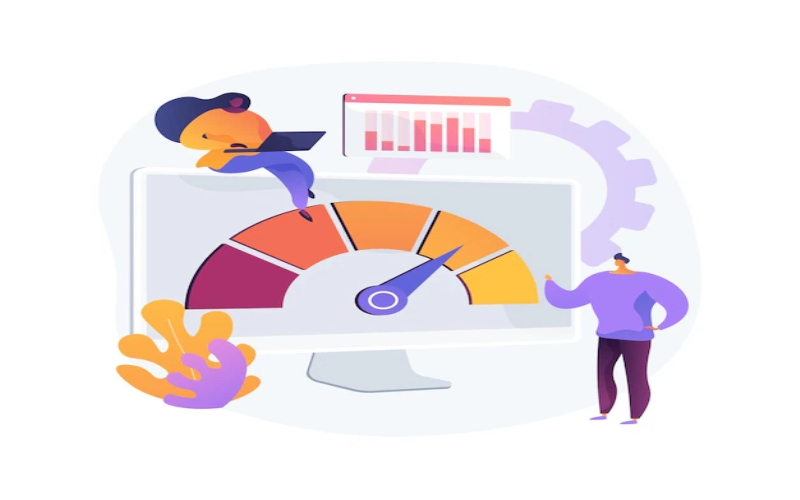In the dynamic landscape of digital connectivity, Virtual Private Networks (VPNs) have become instrumental tools for enhancing online privacy and security.
However, users often ponder the trade-off between the protective features of VPNs and their potential impact on internet speed and overall performance.
This exploration delves into the factors influencing the speed of VPN connections and offers insights into optimizing performance without compromising security.
How VPNs Work
VPN Encryption Overhead
VPNs operate by encrypting data to ensure a secure connection between the user’s device and the server. This encryption process, while fundamental for privacy, introduces an overhead that can impact internet speed.
The level of encryption, measured in bits (e.g., 128-bit or 256-bit), directly influences the overhead and, subsequently, the speed reduction.
Server Proximity and Load
The geographical distance between the user and the VPN server affects the speed. Generally, connecting to a nearby server results in faster speeds compared to connecting to a server on the other side of the globe.
The number of users sharing the same server can influence speed. Overloaded servers may experience slower performance.
Factors Influencing VPN Speed
Internet Connection Speed
- Baseline Speed: The speed of the user’s internet connection without a VPN serves as the baseline. The VPN speed is a relative measure compared to this baseline.
- Plan and Provider: Users with high-speed internet plans generally experience less noticeable speed reduction when using VPNs. The VPN provider’s infrastructure and capacity also play a crucial role.
VPN Protocol Selection
- Protocol Impact: The choice of VPN protocol can impact speed. While some protocols prioritize security, others focus on speed. Users can choose protocols based on their preferences and use cases.
Device Performance
- Processing Power: The device’s processing power influences how efficiently it can encrypt and decrypt data. Older devices or those with limited processing capabilities may experience more substantial speed reductions.
Optimizing VPN Performance
Choose the Right Server
- Proximity: Opt for a server that is geographically close to your location to minimize latency and speed up data transmission.
- Server Load: Select servers with lower user loads to ensure better performance.
Experiment with Protocols
- Protocol Options: VPN services offer multiple protocols. Experiment with different options to find the balance between security and speed that suits your needs.
Upgrade Internet Plan
- High-Speed Plans: Consider upgrading your internet plan to a higher speed tier. A faster baseline speed can mitigate the impact of VPN overhead.
Use Efficient Devices
- Upgrade Hardware: If possible, use devices with better processing power. Upgrading to newer hardware can enhance the efficiency of VPN operations.
Conclusion
In conclusion, the impact of VPNs on internet speed and performance is influenced by various factors, from encryption overhead to server selection and device capabilities.
Users can optimize their VPN experience by making informed choices, such as selecting the right server, experimenting with protocols, upgrading their internet plan, and using efficient devices.
Balancing security and speed ensures that users can enjoy the protective benefits of VPNs without compromising the performance of their online activities.
Frequently Asked Questions – (FAQs)
Do VPNs always slow down internet speed?
While VPNs may introduce some speed reduction due to encryption overhead, the impact varies. Factors such as server proximity, server load, internet connection speed, and device performance play crucial roles. Choosing the right settings and configurations can mitigate speed reduction.
How does server distance affect VPN speed?
Connecting to a VPN server in close geographical proximity generally results in faster speeds compared to connecting to a server located far away. Reduced latency and quicker data transmission contribute to a smoother VPN experience.
Can I improve VPN speed by choosing a specific protocol?
Yes, the choice of VPN protocol can influence speed. Some protocols prioritize security with stronger encryption, while others focus on speed. Users can experiment with different protocols to find the optimal balance for their needs.
Does my internet plan impact VPN speed?
Yes, the speed of your internet plan without a VPN serves as a baseline. Users with high-speed internet plans tend to experience less noticeable speed reduction when using VPNs. Consider upgrading your internet plan for a faster baseline speed.
How does device performance affect VPN speed?
The processing power of your device influences how efficiently it can encrypt and decrypt data. Older or less powerful devices may experience more significant speed reductions when using VPNs. Upgrading to newer hardware can improve VPN efficiency.
Can choosing the right VPN server improve speed?
Yes, selecting the right VPN server is crucial for optimizing speed. Choose a server that is geographically close to your location to minimize latency. Additionally, opt for servers with lower user loads to ensure better performance.
Should I upgrade my internet plan for better VPN speed?
Upgrading your internet plan to a higher speed tier can help mitigate the impact of VPN overhead on speed. A faster baseline speed provides more bandwidth for secure data transmission through the VPN.
Are there specific protocols that offer better speed?
Some VPN protocols are designed for faster speeds, prioritizing efficiency over advanced encryption. Users can experiment with protocols like IKEv2 or L2TP/IPsec to find the right balance between security and speed.
